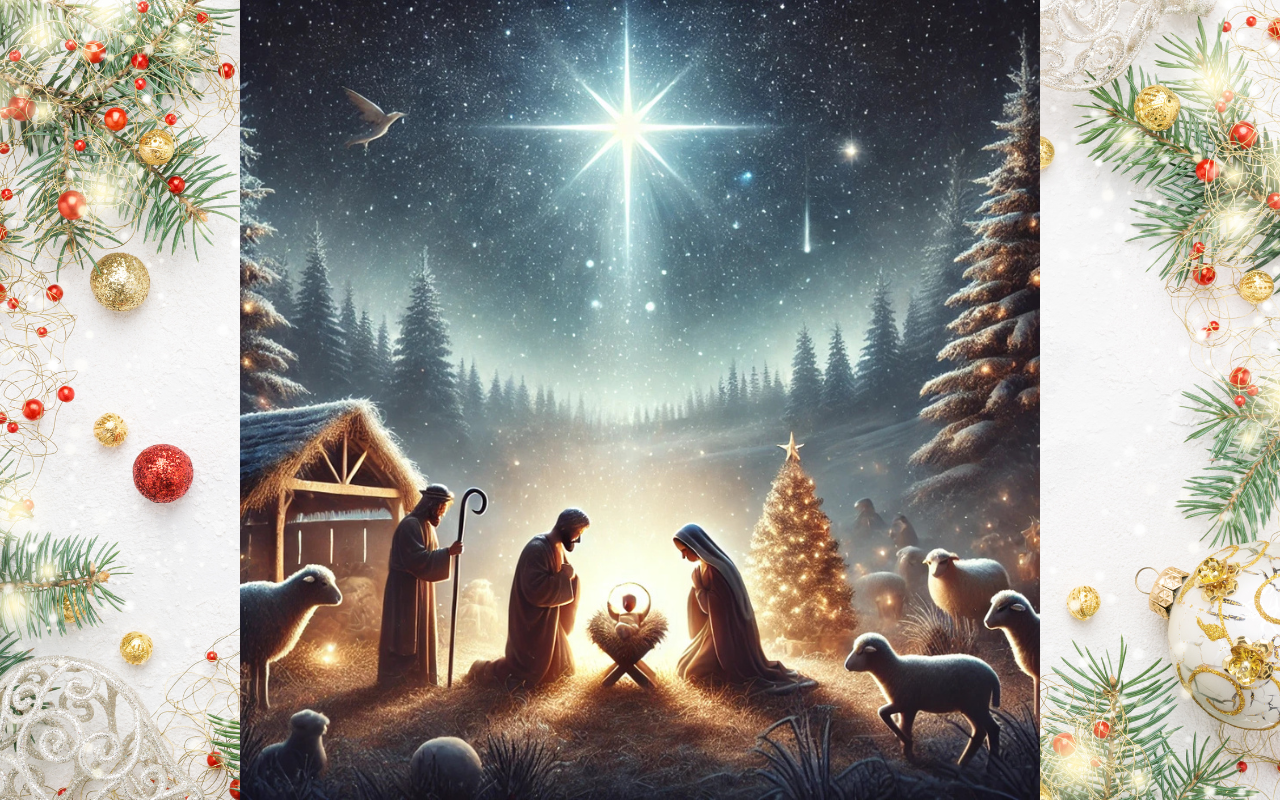
When December rolls around, millions of people around the globe prepare to celebrate Christmas. The air fills with joy, homes light up with decorations, and festive traditions bring loved ones together. But how many of us pause to consider why we celebrate Christmas on December 25th? If you’ve ever wondered whether the date has any direct connection to the birth of Jesus, you’re not alone. Spoiler alert: it’s not as straightforward as you might think. Stick with me, and by the end of this blog, you’ll have a better understanding of the history, faith, and meaning behind this cherished tradition. I am passionate about uncovering the intersection of faith and culture. Let’s take a journey through history, Scripture, and culture to answer this age-old question.
Who Chose December 25 and Why?
It may surprise you to learn that the Bible does not pinpoint the exact date of Jesus’ birth. Early Christians didn’t even focus on celebrating His birth; instead, they emphasized His death and resurrection. But by the 2nd century, the practice of commemorating Jesus’ birth began to take shape, and by the 4th century, December 25th emerged as the chosen date. Why?
There are three prevailing theories:
Sextus Julius Africanus and the March 25 Conception Theory
This early Christian historian believed that Jesus’ conception occurred on March 25th, making December 25th—exactly nine months later—the logical date for His birth.
The Winter Solstice Connection
During the 3rd century, the Roman Empire celebrated the winter solstice and the festival of Sol Invictus (“Unconquered Sun”) on December 25th. Some scholars suggest that Christians adopted this date to create a meaningful contrast, proclaiming Jesus as the true Light of the World.
Constantine and Political Strategy
In 336 AD, Emperor Constantine officially recognized December 25th as Christmas. Some theorize this decision aimed to unify Christians and diminish the popularity of pagan festivities. It wasn’t until the 9th century that the Eastern Church also adopted December 25th, shifting from their earlier celebration on January 6th. While none of these theories offer definitive proof, they point to a fascinating blend of faith, tradition, and cultural adaptation.
Was Jesus Really Born?
Absolutely. Beyond Scripture, historical evidence corroborates the life of Jesus. For instance:
Jewish Historian Flavius Josephus mentions Jesus in his work Jewish Antiquities (93 AD).
Roman Historian Tacitus references Jesus’ crucifixion in the Annals of Imperial Rome (116 AD).
From a biblical perspective, Luke 1:30-31 recounts the angel’s announcement to Mary, and Luke 2:6-7 describes Jesus’ humble birth in a manger. The testimony of Jesus’ birth, life, and death has been faithfully passed down, underscoring the miraculous reality of Emmanuel, God with us.
Do We Know the Exact Date of Jesus’ Birth?
While December 25th is unlikely to be the actual date, scholars have pieced together intriguing clues:
Shepherds in the Fields: Luke’s Gospel describes shepherds watching over their flocks, an activity more common in warmer months like late summer or early fall.
The Census and Travel: Mary and Joseph’s journey to Bethlehem aligns with Roman census practices, typically conducted in more temperate seasons.
The Birth of John the Baptist: Calculations based on Zacharias’ priestly service (Luke 1) suggest that John’s birth occurred in late March, placing Jesus’ birth around late September.
While these insights are compelling, the precise date remains a mystery—a reminder that Christmas’s focus isn’t on the “when” but the “why.”
How Has Christmas Evolved Over Time?
Christmas celebrations have undergone remarkable transformations:
3rd Century AD: The date merged with Saturnalia, a Roman festival featuring feasting, gift-giving, and decorating.
Colonial America: While some groups like the Puritans rejected Christmas, others celebrated with church services, feasts, and modest gift exchanges.
19th Century: Modern traditions like Christmas cards (1843) and decorated trees gained popularity, thanks to figures like Queen Victoria and Prince Albert. Santa Claus’ image took shape in Clement Clarke Moore’s famous poem “A Visit from St. Nicholas” (1823).
20th Century: Commercialization skyrocketed with the advent of Christmas advertising, iconic films, and festive songs.
21st Century: Digital technology has introduced new customs, from tracking Santa online to sharing e-cards and viral videos.
Despite these changes, the central message of Christmas—the birth of Jesus—remains unchanged.
Why December 25 Still Matters
Amid gift-giving, parties, and family gatherings, it’s easy to lose sight of what Christmas represents. But as Hebrews 13:8 reminds us, Jesus Christ is the same yesterday, today, and forever. Celebrating His birth on December 25th—or any day—is an opportunity to reflect on His love, grace, and the hope He brings to our lives.
So, enjoy the secular traditions. Light the tree, bake cookies, and wear that ugly sweater. But don’t forget to take intentional time to worship the One who is the reason for it all: Jesus—our Savior, Emmanuel, and King.
